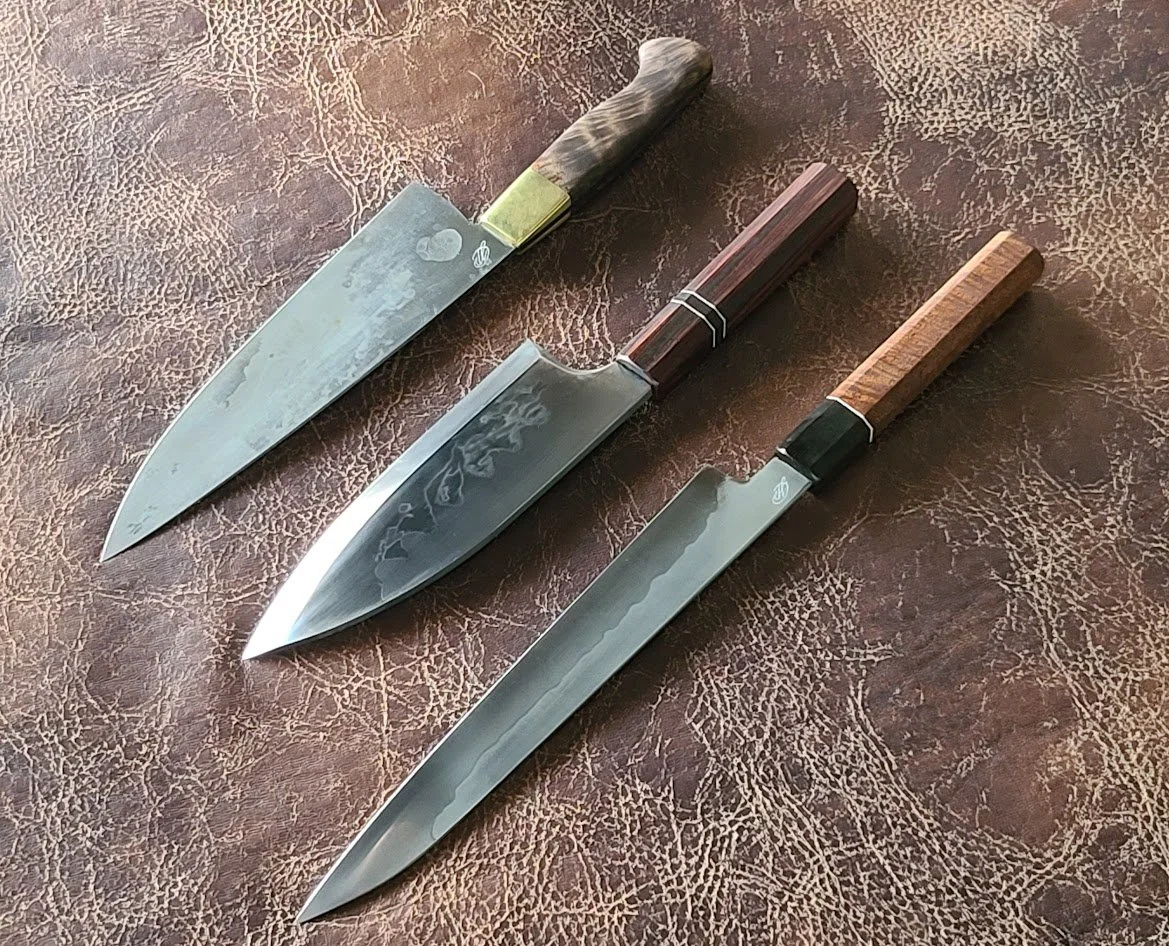Knife Care
Most of my knives are made with carbon steel, which means that they can corrode/rust if not properly taken care of, but it’s not too hard to prevent it. I even provide protection against it when you buy one of my knives. (Knife Elixir)
Some simple precautions you can take to make sure that a carbon steel knife stays in good shape, would be wiping down the blade with a dry towel after cutting, not letting it sit in water, and wiping it down with a food safe oil before storage. A carbon steel knife will inevitably patina, or develop an array of colors across the blade. This patina helps protect against corrosion or rust. I personally thoroughly enjoy the individuality and life a knife takes on when it develops a one of a kind patina.
Carbon steel and food reactivity: As you use your knife to build a patina a few things will happen. During the first few days of use, the blade may produce a slight smell when cutting acidic fruits or vegetables This is normal and will stop after the patina is formed. A simple way to wipe food acid off your knife while you work is to keep a kitchen towel next to your cutting board. This is a common practice in professional kitchens, one dry towel to keep your knife dry, and one damp towel with some type of sanitizer for your work area.
Even though the patina protects against rusting, your knife should also be kept as dry as possible. After use, simply rinse with warm soapy water by hand (watch those fingers) and then dry the blade and handle. Never put your knife into a dishwasher.
For additional maintenance, occasionally oiling your knife with any type of food oil will also help give it extra protection from rusting.
Edge upkeep: When a knife’s edge begins to roll over from use, simply strop the edge with a leather strop or ceramic honing rod. On kitchen knives I prefer a leather strop loaded with a bit of diamond paste or cbn compound. Another big thing to note on fine kitchen knives, the edge will last longer when used on a soft wood cutting board. Cutting boards to avoid when you can: plastic, bamboo, glass, or bare countertop. (If you are in a professional environment I know you have to use a NSF approved plastic board) just know that you need to maintain your edge more regularly.
PAY ATTENTION this part is crucial… Whatever you do, DO NOT PUT A KNIFE IN THE DISHWASHER.
It is terrible for a knife! The heat, pressure, and steam are all awful for a blade and wooden handle. To top it off, dishwasher detergent has an abrasive in it that wears away (dulls) the edge of the knife. (“Dishonor! Dishonor on your whole family! Dishonor on you, dishonor on your cow!”) -Mushu the dragon

